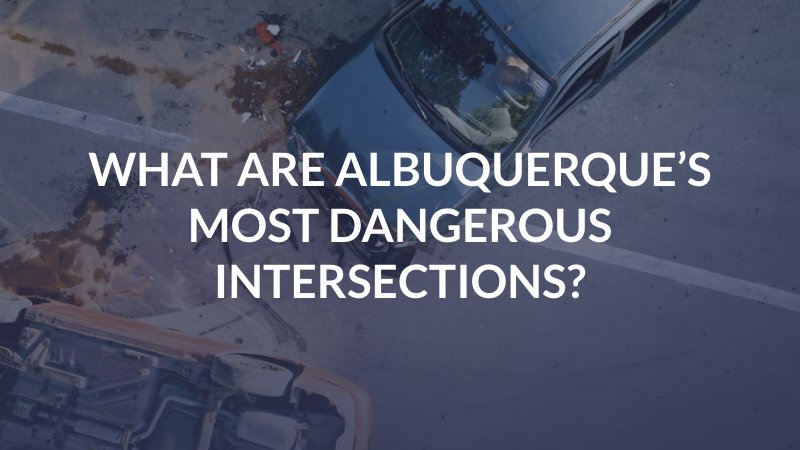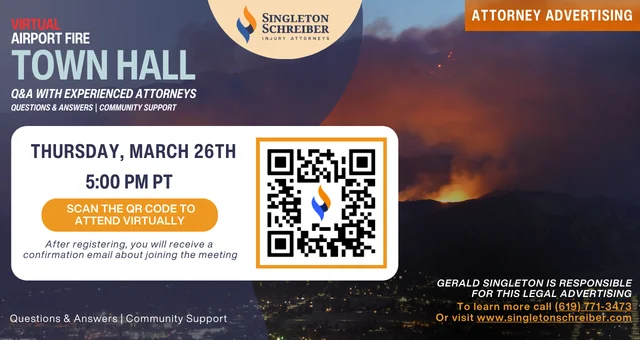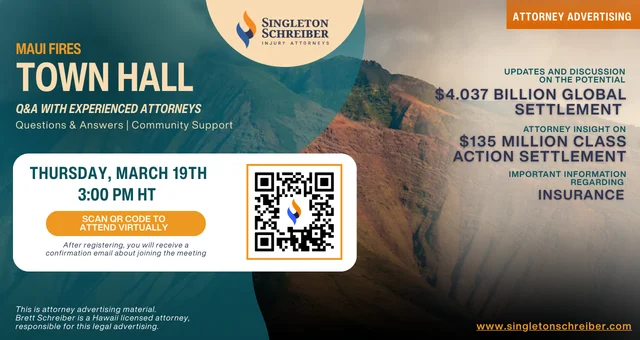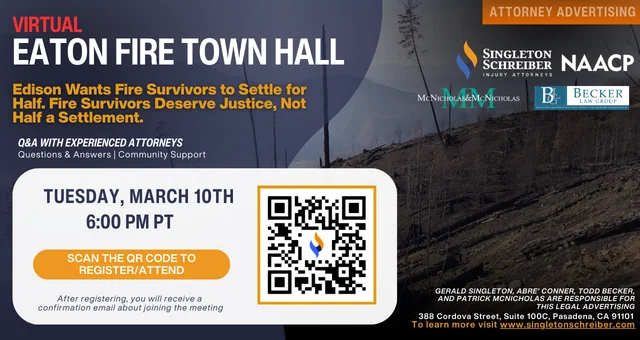Intersection accidents are known for being catastrophic. Nationwide, about half of all serious injury collisions and one-quarter of all fatal car accidents happen in intersections.
Needless to say, if you’ve been involved in an Albuquerque intersection accident, you’re probably struggling with painful injuries, sky-high costs, and debilitating emotional trauma. Or, you’re grieving the unexpected and avoidable death of a loved one.
If that’s the case, you deserve justice. The driver who caused your intersection accident in Albuquerque has to be held accountable - and Singleton Schreiber can help.
Here’s what you need to know about intersection accidents in Albuquerque - including why they happen, where they happen, and how our Albuquerque accident lawyers can help fight back when you’ve been hurt.

What Are Albuquerque’s Most Dangerous Intersections?
Car accidents happen across the city of Albuquerque, New Mexico, every day. However, certain crossroads are known for being more dangerous than others and see a fair share of the city’s collisions.
A study conducted by the New Mexico Department of Transportation (NMDOT), the University of New Mexico, and the Mid-Region Council of Governments (MRCOG), determined that the most dangerous intersections in Albuquerque in 2022 included:
- Montgomery Blvd and San Mateo Blvd
- Coors Blvd and Irving Blvd
- Paseo Del Norte and I-25
- Coors Blvd and Quail Rd
- Eubank Blvd and I-40
- Louisiana Blvd and I-40
- Montgomery Blvd and I-25
- Osuna Road and I-25
- Central Ave and I-25
- Coors Blvd and I-25
- San Mateo Blvd and I-40
- Paseo Del Norte and Coors Blvd
Two major interstates - I-40 and I-25 - converge in the heart of downtown Albuquerque. Both are known for being among the most dangerous highways in New Mexico. Not surprisingly, the rate of accidents at this major intersection is high.
What Causes Most Intersection Accidents in Albuquerque?
Intersections are inherently dangerous because they’re crossroads where two or more roads meet. When approaching an intersection, drivers may continue forward on their designated road, execute a turn onto the intersecting road, or perform a U-Turn to drive back in the opposite direction.
Albuquerque controls intersection traffic with lights, signs, road markings, and infrastructure. As long as drivers comply with these features, traffic should be able to move through intersections safely.
Problems arise when drivers engage in dangerous behaviors at the wheel and ignore important city laws and traffic customs.
Intersection accidents - including rear-end collisions and broadside accidents - tend to happen when drivers:
- Attempt to beat a yellow light so they’re not stopped at the intersection
- Blatantly run a red light or stop sign
- Execute an illegal right-turn on red
- Misjudge the time they have to turn left safely in front of oncoming traffic
- Forget to look for pedestrians in crosswalks before turning
- Following other vehicles too closely when approaching an intersection
These things tend to happen when drivers are aggressive, distracted, under the influence of drugs or alcohol, or fatigued.
Negligent Drivers Can Be Held Accountable For Intersection Car Accidents in Albuquerque
Ultimately, most intersection accidents in Albuquerque can be avoided. They typically happen when a driver is negligent and ignores important road signs and signals.
If you’ve been injured because of a negligent driver at an intersection in Albuquerque, the Albuquerque injury attorneys at Singleton Schreiber can help you take action and fight to hold them accountable for your medical bills, lost wages, suffering, and other damages.
New Mexico has strict time limits on car accident lawsuits, so it’s important to contact our Albuquerque law office as soon as you can after a collision at one of the city’s intersections. Members of our award-winning team are available to help 24/7/365.
About Car Accidents
- Car Accident Overview
- Damages Available in Car Accident Cases
- Getting a Car Accident Report in Albuquerque
- How Long Does it Take to Settle a Car Accident Claim?
- Insurance Minimums
- Liability in Car Accidents
- Steps to Take After a Car Accident
- Time Limits for Car Accident Claims
- What is My Car Accident Claim Worth?
Car Accident Injuries
- Airbag Injuries
- Bone Fractures
- Bruising and Contusions
- Chest Injuries
- Delayed Injuries
- Low-Impact Injuries
- Nerve Damage
- Seatbelt Injuries
- Soft Tissue Injuries
Types of Car Accidents
- Aggressive Driving Accidents
- Dangerous Road Accidents
- Distracted Driving Accidents
- Drowsy Driving Accidents
- Drunk Driving Accidents
- Fatal Accidents
- Head-On Collisions
- Highway Accidents
- Intersection Accidents
- Rear-End Accidents
- Rollover Accidents
- Sideswipe Accidents
- Speeding Accidents
- T-Bone Accidents
- Tailgating Accidents
- Weather Related Accidents
- Work Zone Accidents




